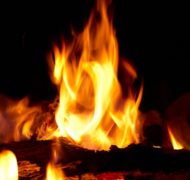Who Were the Prophets?
Bible Commentary / Produced by TOW Project
Called by God and filled with God’s Spirit, a prophet spoke God’s word to people who had in one way or another distanced themselves from God. In one sense, a prophet is a preacher. But in marketplace terms, a prophet is often a whistle-blower, particularly when an entire tribe or nation has turned away from God.
The prophets peopled the pages of Israel’s history. Moses was God’s prophet, used to rescue the Hebrew people from slavery in Egypt and then to lead them to the land God had promised them. Again and again, these people turned away from God. Moses was God’s first mouthpiece to bring them back into a relationship with God. In the Old Testament history books (Joshua, Judges, 1 & 2 Samuel, 1 & 2 Kings, 1 & 2 Chronicles, Ezra, and Nehemiah), prophets such as Deborah, Samuel, Nathan, Elijah, Elisha, Huldah, and others came forward to speak God’s word to a rebellious people.
Israel’s religious worship was organized around the labor of priests, first in the tabernacle and later in the temple. The day-to-day job description of priests lay in slaughtering, butchering, and roasting the sacrificial animals brought by worshipers. But a priest’s tasks went beyond the heavy physical work of dealing with thousands of animal sacrifices. A priest was also responsible to be a spiritual and moral guide to the people. While the priest was often seen primarily as the mediator between the people and God in the temple sacrifices, his larger duty was to teach God’s law to the people (Lev. 10:11; Deut.17:8-10; 33:10; Ezra 7:10).
In Israel’s history, however, the priests themselves often became corrupt and turned away from God, leading the people in the worship of idols. Prophets arose when the priests failed to teach God’s law to the people, and kings and judges failed to govern the country justly. In a sense, God called and spoke through prophets as whistle-blowers when the whole Israelite enterprise was on the brink of self-destruction.
One of the stunning tragedies of the people of God was their persistence in pursuing the worship of the many gods of their pagan neighbors. The common practices of this idolatrous worship included offering their children in the fires of Moloch and ritual prostitution with every imaginable lewd practice “on the high places, on the hills, and under every green tree” (2 Chr. 28:4). But an even greater evil in forsaking Yahweh came in forsaking God’s structure for living in community as a distinct and holy people of God. Concern for the poor, the widow, the orphan, and the stranger in the land was replaced by oppression. Business practices overturned God’s standard so that extortion, taking bribes, and dishonest gain became commonplace. Leaders used power to destroy lives, and religious leaders despised God’s holy things. Far from enriching the nation, these ungodly practices led to the downfall of the nation. The prophets were often the last voices in the land, calling people back to God and to a just and healthy community.
In most cases, the prophets were not “professional” in the sense of earning a living from their prophetic activities. God tapped them for special duty while in the midst of other professions. Some prophets (e.g., Jeremiah and Ezekiel) were priests with the duties described above. Others were shepherds, including Moses and Amos. Deborah was a judge adjudicating issues for the Israelites. Huldah was probably a teacher in the scholarly sector of Jerusalem. The task of a prophet overlaid other jobs.





